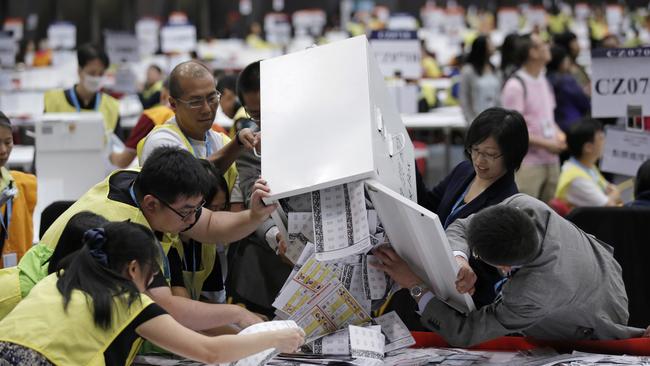
We may look back on the first few days of the 2016 Australian Spring as a turning point for the nation. There is no doubt that the G20 meeting in Hangzhou is important but, longer term, the Hong Kong elections are a bigger marker because they could trigger much larger Hong Kong investment in and migration to Australia.
An active part of the island’s population, mainly younger people, wants independence, or certainly much greater freedom, from China.
While it is possible China will roll over, such an event is highly unlikely because leadership in China is totally dedicated to the One-China policy. And the current administration in China is much more aggressive than the previous one, especially as they believe that the US no longer has military superiority in the region (Markets can’t afford to ignore the resurgence of major power politics, August 30).
Former administrative head of Hong Kong, Anson Chan, believes the current Hong Kong chief executive Leung Chun-ying is provoking debate to convince China to take a much stronger stand in Hong Kong. And the community division on the question of independence plays into that view. Early results suggest that pro-democracy parties may have gained ground, which increases the risk of strong Chinese retaliation.
It is some two decades since we saw the last massive Hong Kong exodus as the British prepared to cede control of the British colony to China. The bulk of those leaving went to Canada and particularly Vancouver.
The Canadian city no longer has the welcome mat out (Canada’s lesson for the local property market, Aug 22) so it is Australia where many will head.
Indeed, the Hong Kong movement has already started with a 27 per cent rise in visas in the last two years and a similar rise in the number of visitors. And people of Hong Kong origins are taking up their Australian citizenship rights on a much larger scale (Migrants from HK boom as poll nears, Sept 2).
Hong Kong has not been a major player in our real estate market in recent years. In 2014-15, Hong Kong invested $1.68 billion into Australian real estate. Unfortunately, this number isn’t separated into residential and commercial property. Hong Kong accounts for 1.7 per cent of foreign investment into Australian real estate. Mainland China invested $23.4bn in 2014-15 (25.1 per cent of the total).
An important part of the mainland total has been the massive purchase of Melbourne apartments off-the-plan via a 10 per cent deposit.
The new clamps on money leaving China and the tightness of Australian banks means that there is great danger that these purchase agreements will not be consummated when the apartments are completed. This represents a major threat to the building industry and the Australian economy (The Chinese seeds of the next banking scandal, Aug 8).
Right now, Hong Kongers can extract their money but if there is too much turmoil there will be a crackdown from China. If Hong Kong investment, fearing a mainland crackdown, starts to flow, it will be much bigger story than simply overcoming the temporary Melbourne apartment glut. It will be accompanied by a migration push.
The pro-democracy groups in Hong Kong have close to a hopeless task. While 40 of the Legislative Council’s 70 members are directly elected by the public, 30 are selected by small voting blocs from special interest groups. Those seats predominantly go to pro-Beijing candidates.
Entrenched divisions between the pro-establishment and democracy camps have caused the Legislative Council to become chaotic — a very dangerous situation.
Fears that Hong Kong’s freedoms are set to be attacked this year were inflamed when five city booksellers known for selling books about Beijing politicians that were banned in China suddenly disappeared. They resurfaced in detention on the mainland, triggering widespread condemnation.
That fuelled the fire of the movement, which is seeking distance from China.
Some young campaigners are demanding outright independence, while others want Hong Kong to determine its own future in a referendum. In other words the movement is split.
The stronger breakaway activists are slammed by both Beijing and Hong Kong as acting illegally. Indeed, they were banned by the government from running in Sunday’s election, a move that sparked outrage over political censorship. Meanwhile a number of Australian lawyers who have been operating out of Hong Kong have shifted to Beijing. Hong Kong is losing its grip.
Hear from Alan Kohler, Robert Gottliebsen, Stephen Bartholomeusz & John Durie at a special member Q&A. Find out more or book tickets here.






